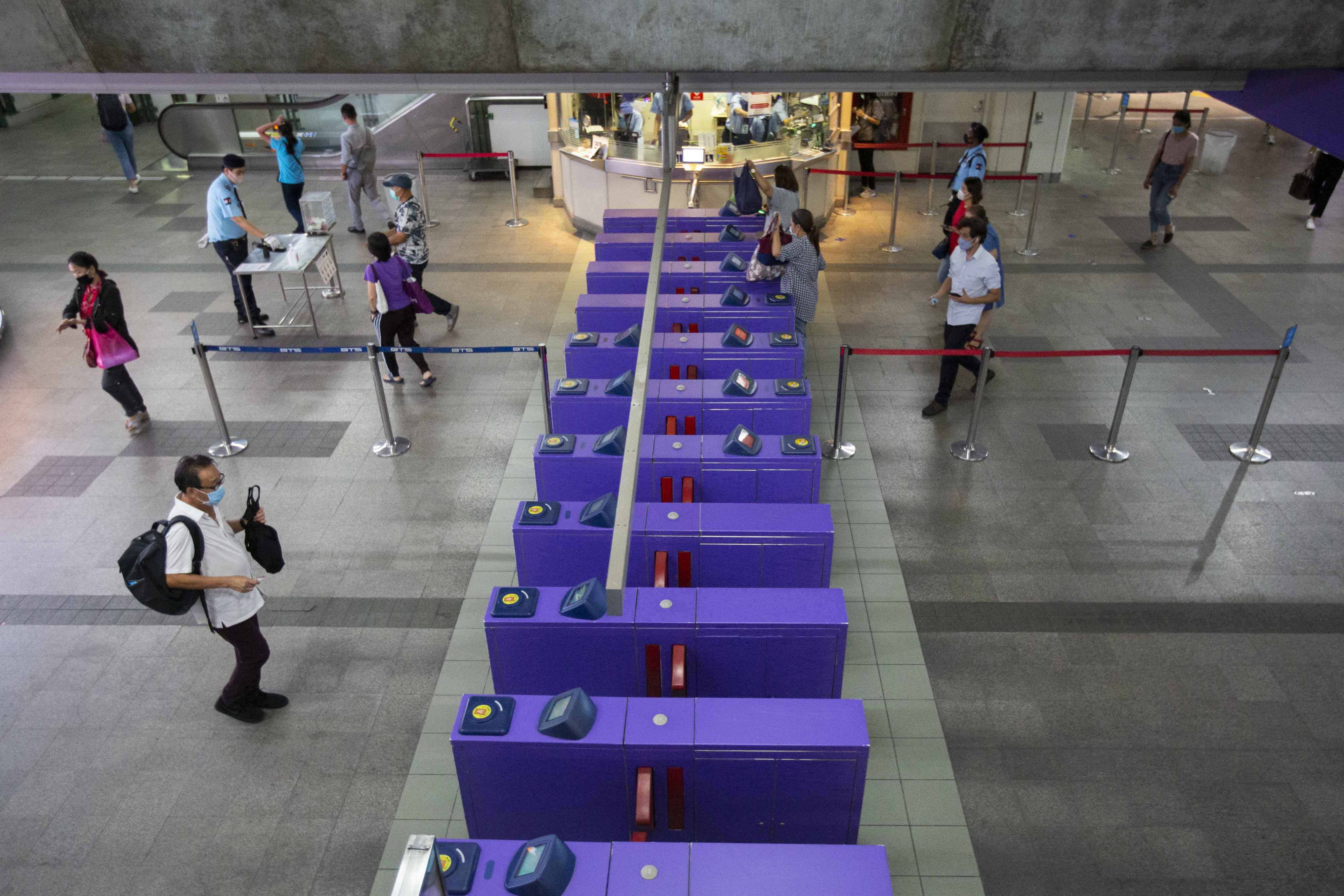
People pass through the Asok station in Bangkok, Thailand, on Friday, April 3, 2020.
Andre Malerba | Bloomberg via Getty Images
Despite cooperation from the Thai people, more work is needed to curb the coronavirus pandemic, Thailand’s Deputy Prime Minister Anutin Charnvirakul told CNBC’s “Street Signs Asia” on Wednesday.
Charnvirakul, who’s also Thailand’s minister for public health, alluded to a study that suggested a need for at least 80% of people in Thailand to practice social distancing in order to slow the spread of COVID-19.
“…So far Thai people have been giving full cooperation but we need more because there was a study showing that we need to have at least 80% of social distancing from our people in order to pull the curve down,” Charnvirakul said.
According to Charnvirakul, there have been some improvements in terms of control since “intensive” measures were imposed beginning last month.
Apart from that, the country has also been sending countrywide messages about the importance of social distancing and restricting entry for non-resident foreigners into Thailand.
These efforts have allowed authorities in Thailand to “control the situation to the level (they) want to see.”
However, at present only 70% of Thais understand and are engaging in social distancing, according to a Bangkok Post report, leaving Thailand still short of the 80% threshold.
The Ministry of Public Health estimates that if at least 80% of Thais comply with social distancing measures, the number of infected patients will reach 7,745 by April 15 compared to 17,635 cases if compliance reaches only 50%.
As of Thursday morning local time, Thailand had recorded 2,369 confirmed cases of the coronavirus disease and 30 deaths, according to Johns Hopkins University data.
Following a month-long state of emergency declared on March 26 by Prime Minister Prayuth Chan-ocha, which gave the Thai government power to impose tougher restrictions not normally allowed under existing laws, an indefinite nationwide night curfew was implemented on April 3.
While a date for lifting the curfew has not yet been set, Charnvirakul said authorities will closely monitor the situation and will quickly make a decision once it’s believed that the country is safe and people will be protected from contracting the disease
On Monday, the Southeast Asian nation also extended its ban on all incoming passenger flights — originally till April 6 — till the end of April 18, according to Reuters.
Source: Business - cnbc.com



